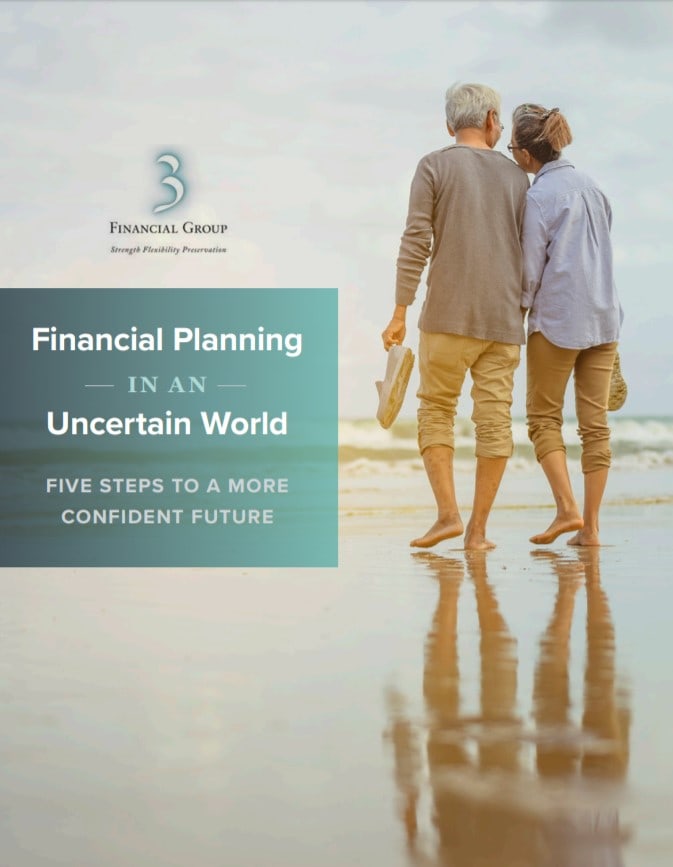Life insurance salespersons will often recommend life insurance for everything! This isn’t usually because life insurance is appropriate for everyone in every situation, but rather:
- Life insurance is the only thing that person can sell because they do not have the licenses to use a broader range of investments, like stocks and bonds.
- They make large commissions from selling life insurance.
So instead of focusing on what that salesperson needs, focus on what you need!
What is the Purpose of Life Insurance?
Life insurance can have several purposes. Life insurance protects your economic value, can help equalize estates, provides liquidity at death, and helps pay for estate taxes. In this blog, we’ll discuss how life insurance can protect your economic value.
For most middle-class people, life insurance protects your economic value for the people you care about. So, for life insurance to make sense for you with this purpose, two things must be true:
- Someone is economically dependent on you.
- You care about those people who are economically dependent on you!
For example, you may have children who need you to go to work and make a paycheck so that they can eat and have a place to live. Don’t discount unpaid work when thinking about this! I’m looking at you, stay-at-home moms! If one of those two things is not true, you probably do not need life insurance for this purpose. If both of those things are true, life insurance can be a valuable tool to protect your loved ones.
What Kinds of Life Insurance Exist?
There are two basic kinds of life insurance: term and permanent.
Term insurance is like renting. You pay rent (known as premiums in the insurance world) for a certain period of time, such as 20 years. If you die during that time, the insurance company pays your beneficiary the death benefit. If you do not die during the period, the life insurance company keeps your premiums, your beneficiaries do not get the death benefit and you live! Think of it like the car insurance you pay for: if you don’t get in an accident, the insurance company keeps your premiums, and your car isn’t damaged. Term insurance is the most affordable option. This is because you are sharing the risk along with all of the other people buying life insurance with that company.
Term insurance also protects you during the time period you are likely to need it most. For example, if you are a new parent, you might get a term policy that covers 20 years. This would ensure that while your children are young and dependent on you, they are protected in case you die unexpectedly. You might also get a term policy if you are young or early in your career and you and your partner are building assets together. When you are younger or just starting out, your biggest asset is your ability to earn an income. If you die prematurely, then that asset is cut short, and your partner could be left with some serious obligations such as a mortgage for a house that they need two incomes to afford. As you progress through life, you should reduce your debt obligations and increase your assets through saving and investing. (If you are not doing that, definitely talk to a financial planner to get on track! We can help.)
Permanent insurance is more akin to owning. There are MANY different types of permanent insurance, which we’ll soon discuss in a later blog. For now, we’ll cover the basics. With permanent insurance, you often pay premiums for life. You can also pay a single large premium, or a series of large premiums, to secure the insurance for life. With permanent insurance, you pay a much higher premium than term insurance because the insurance company knows they will have to pay out at some point. They just don’t know when.
One way insurance salespersons try to lure people into buying permanent insurance (when they don’t really need it) is by preying on people’s hatred of taxes and ignorance of those tax laws. Unless you are maxing out all of your retirement options, such as a 401(k) or an IRA, then you should not be using life insurance as a savings vehicle. Even if you have maxed out those retirement options, life insurance as a savings vehicle may still not be appropriate for you, especially if you are not in the highest tax brackets.
Do Not Pay for Accidental Death and Dismemberment!
I get notices often from various banks and credit unions insisting that they’ll provide a fabulous opportunity to buy very inexpensive life insurance. However, when I read the details, it quickly becomes apparent that they are hawking Accidental Death and Dismemberment life insurance. This is a very limited form of life insurance. If you are under 45 years old, then your chances of dying from an accident versus an illness are greater. However, after age 45, you are much more likely to die from an illness than an accident. But why gamble on HOW you are going to die? If you are truly trying to protect your economic value for the people you care about, make sure you are covered for both accidents and illness. Don’t fall for the cheap insurance just to learn that it is the most expensive, and doesn’t provide for your loved ones when they need it most.
Do I Really Need Life Insurance?
The decision to get life insurance can be hard for many people to make. We hate thinking about death, and many people simply avoid planning for the future. As humans, we are terrible at assessing risk. We tend to focus on short-term pleasure over long-term planning for uncertain events.
The government recognizes this in some ways and requires us to plan for the future even if we don’t want to. For example, every state requires drivers to have minimum levels of car insurance to protect other drivers. This is largely due to the fact that drivers injure not only themselves but others as well. Those injuries can be catastrophic with lifelong effects far beyond the driver responsible for the injury. Most of us accept purchasing car insurance without even really thinking about it. Of course, we don’t like paying the premiums, but it is part of life. We don’t complain that we pay the premiums but never get into an accident. We don’t pay car insurance premiums because we want to get into an accident. We pay car insurance premiums because we might get into an accident and the consequences could be horrible. Life insurance is the same. We buy life insurance because we might die and the consequences to the people we love could be catastrophic. If you focus on term insurance over permanent insurance, you can usually buy very affordable coverage when you and your family are most at risk.
The Takeaway
Life insurance isn’t always right for every person at every age. The key is to first focus on WHY you need insurance. For most people, life insurance is appropriate if two elements are present:
- Other people are economically dependent on your ability to work and earn an income.
- You care about those people.
If your primary purpose is to protect your income for those you care about, then term life insurance is usually the best option. This is because term life insurance balances affordability and coverage when you need it. You can get coverage during the time of your life when you are building assets and the people you care about are most dependent on you. Life insurance as a savings vehicle, tax shelter, or estate planning tool can be appropriate, but be very clear about why you need it for those purposes. The bottom line? Don’t buy insurance simply because it pays a fat commission to the person selling it.
Need help making sense of the options or figuring out if life insurance is right for you? Connect with us! We can help you build a comprehensive financial plan and help you find the answers you need.


